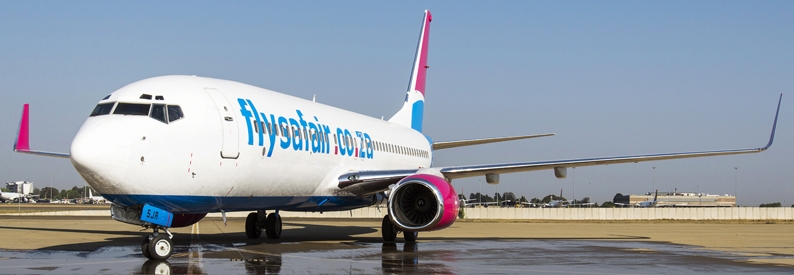FlySafair Faces Route Losses Over Foreign Ownership Violations

South African low-cost airline FlySafair is confronting a major regulatory challenge that could see the carrier stripped of some of its most lucrative routes. Authorities have determined that the airline violated rules governing foreign ownership thresholds, which stipulate that at least 75% of an air services licensee’s voting rights must be held by South African residents. This requirement ensures that the airline remains in control of its operations, finances, and overall decision-making, safeguarding national interests in the aviation sector.
The controversy was sparked by a complaint from the owners of fellow South African carrier Lift Airline, who cited allegations of anti-competitive practices and non-compliance with the foreign ownership rule. In response, South Africa’s Air Services Domestic Council and International Air Services Licensing Council initiated an investigation into FlySafair’s ownership structure. The councils claim that 75% of FlySafair’s ownership is held in Ireland and Belgium rather than in South Africa, a claim that the airline disputes, arguing that the regulatory bodies are misinterpreting its actual control and ownership situation.
As a remedy, FlySafair has appealed for an exemption from South African Minister for Transport Barbara Creecy. The airline’s request seeks to stave off potential sanctions while it challenges the councils’ guilty verdicts. If a final ruling is made against FlySafair, the airline could face severe consequences – from losing traffic rights on some of the country’s busiest and most profitable routes to, in the worst-case scenario, having its operating license revoked, forcing it to cease operations.
FlySafair’s Chief Marketing Officer Kirby Gordon confirmed that the airline has taken immediate steps by appealing for the Minister’s intervention. “We have formally requested an exemption on relevant legal provisions until our court application for a declaratory order is completed and the court reviews the council’s findings,” Gordon explained. He also emphasized that any penalties imposed would not only punish the airline for its alleged breaches but would also aim to recover losses incurred by South Africa due to what the authorities describe as prohibited practices stemming from excessive foreign investment.
In its application, FlySafair argued that the councils’ interpretation of the Foreign Ownership Regulation is “highly unique and irregular in the context of global aviation,” suggesting that very few, if any, comparable laws exist internationally. However, local aviation legal experts are skeptical about the airline’s prospects for success. They contend that FlySafair’s interpretation of the rules is fundamentally flawed and that the airline is essentially putting its operations at risk by attempting to delay the process.
FlySafair currently operates a robust network, with a fleet of 36 Boeing 737s serving 23 routes and 14 destinations across five countries in Southern Africa. Based at Johannesburg OR Tambo International Airport (JNB), the carrier is particularly dominant on the “Golden Triangle” routes linking Johannesburg, Durban, and Cape Town, and it commands about 60% of the domestic market share. Operating roughly 160 flights daily and carrying around 30,000 passengers, any disruption to FlySafair’s services could negatively impact thousands of travelers.
The stakes are especially high in the lead-up to significant events such as the upcoming Coal Conference and the Mining Indaba in Cape Town. These events are expected to draw over 10,000 international visitors, and any sanctions against FlySafair that result in route losses could severely disrupt travel plans and negatively affect the broader market. As FlySafair awaits further developments from the Minister’s legal team, the airline and its passengers remain on edge, with the potential for far-reaching consequences in South Africa’s aviation industry.
Related News : https://suspicious-zhukovsky.67-21-117-18.plesk.page/?s=FlySafair
